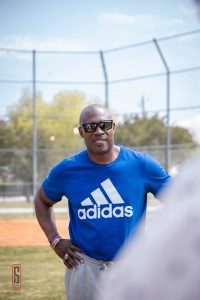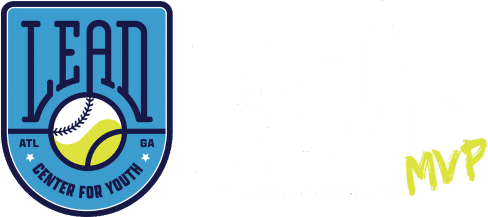 Editor’s Note: This is the first in a two-part series (“Why a Coach is Meant to Move People”) on the difference in opportunities that white and black baseball players are provided. The blogs take a look at my role in helping even the playing field for today’s Black baseball players in the inner city of Atlanta.
Editor’s Note: This is the first in a two-part series (“Why a Coach is Meant to Move People”) on the difference in opportunities that white and black baseball players are provided. The blogs take a look at my role in helping even the playing field for today’s Black baseball players in the inner city of Atlanta.
In the first part of this series, we discussed how a coach moves people. The way the word was used to describe a means of transportation. But as I have learned—and have tried to teach the players under my guidance—the word coach is so powerful today.
As teams add the final pieces to their 2022 MLB draft, another round of African-American baseball players have stepped into the competitive world of professional baseball. Over the years, I have watched as these young players fought to make their place in the game, knowing that even as many were blessed enough to get the opportunity, the numbers were declining.
The reality of this situation hit me hard in 2007 when a white parent of a middle-school age client told me there was a decline of Blacks in baseball. He asked why I was not doing anything about it.
I was planting seeds in a suburban garden that wasn’t my own. The garden I needed to cultivate was in the inner city of Atlanta.
How could I call myself a good coach simply because I had a winning team of middle- to upper- middle class, highly motivated, well-resourced players—both Black and white on my squad?
Success is what you get. Significance is based on what you give. Remember: You cannot give what you do not have.
I was faking it to make it as a respected and legitimate coach.
Regulated and well-resourced middle and upper middle class Black boys are able to navigate the sport of baseball far better than those who are dysregulated, i.e., the ones living at or below the poverty level. These are the young—and talented—players who do not have access to the coaching, resources and facilities that can foster their growth.
That’s why so many of the players living in the inner cities are siphoned away to help other communities win to the detriment of their own.
I know that feeling. I lived in Bankhead, a northwest suburb of Atlanta. I made frequent trips to play for Cobb County teams when I was a teenager.
Success is what you get. Significance is based on what you give. Remember: You cannot give what you do not have.
My personal mission in life is to be significant by serving millions and bringing them into a relationship with Christ, starting with my wife, Kelli, and our daughters, Mackenzi and Mackenna.
My spiritual gifts are prophecy and discernment, and my earthly talent is coaching.
I was convicted by God through that white parent in 2007 to accept an assignment to create a brave space for African-American boys living in the inner city Atlanta. My calling was to use the sport of baseball to help them overcome the three curve balls that threaten their success: crime, poverty and racism.
Fifteen years later, my wife and I are still here coaching Black boys from Atlanta Public Schools—young boys who are underperforming in the areas of grades, attendance and behavior in their plight to become Major League Citizens.
It is the calling I accepted and the one I will continue to heed.
For more information, visit L.E.A.D. Center for Youth today. Also, check out our Digital Magazine.
C.J. Stewart has built a reputation as one of the leading professional hitting instructors in the country. He is a former professional baseball player in the Chicago Cubs organization and has also served as an associate scout for the Cincinnati Reds. As founder and CEO of Diamond Directors Player Development, C.J. has more than 22 years of player development experience and has built an impressive list of clients, including some of the top young prospects in baseball today. If your desire is to change your game for the better, C.J. Stewart has a proven system of development and a track record of success that can work for you.



